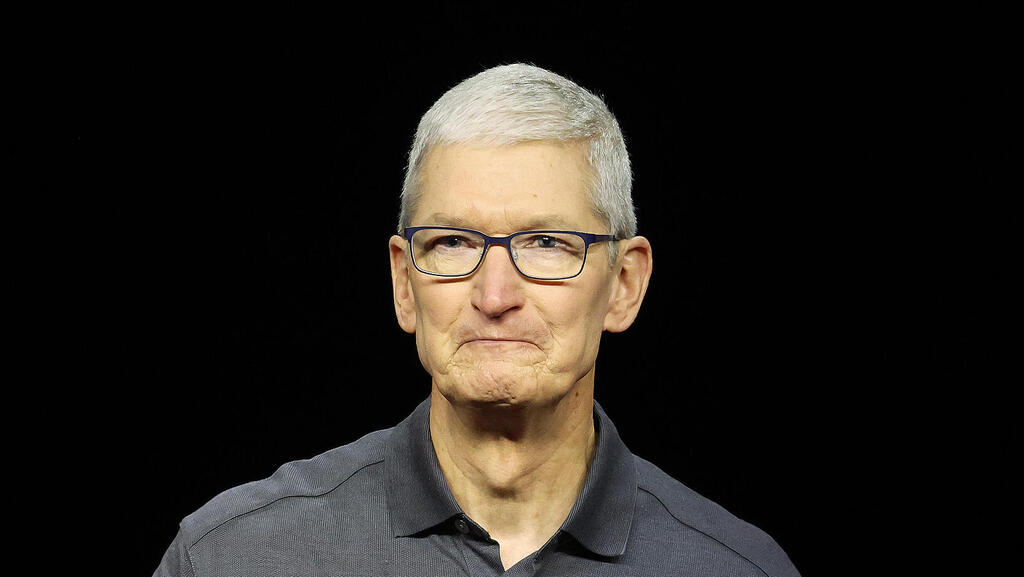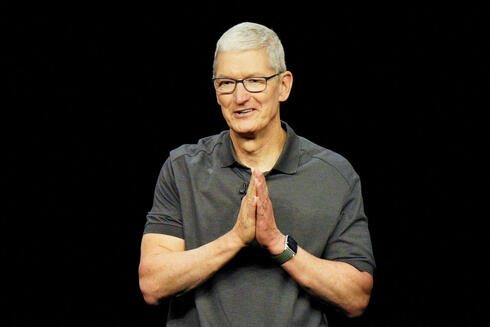
Apple's U-turn: After investing billions, Apple gives up on autonomous car in favor of AI
While Apple tried to reach the next breakthrough through autonomous cars, it missed the breakthrough that came through AI. Now it has decided to close one of the most ambitious projects in its history and divert resources to the hottest field in tech
This week Apple did something it doesn't do too often, certainly not after a massive investment: it gave up. According to a Bloomberg report, after a decade of efforts and investments of billions of dollars, the technology giant decided to close its autonomous electric car development project. It intends to channel the resources that will be freed up into two more promising areas: generative artificial intelligence, where the company is lagging behind other players, and AR (augmented reality) products, where it is working to bring about the next breakthrough.
The closing of Apple's automotive division will continue for some time, and at the end of it, many of the project's 2,000 employees will move to Apple's artificial intelligence division, where they will be engaged in the development of generative artificial intelligence (GenAI) products. The project also employs several hundred hardware engineers and car designers, who may be able to diversify into other positions at Apple. According to Bloomberg, layoffs are also expected, but it is not clear to what extent. Apple did not respond to the report.
It was one of the most ambitious development moves in Apple's history, and considering the huge investment and the end result, also one of its major failures. The decision to shut down and transfer the project's employees to work on GenAI reflects the change in the focus of the technology world when it comes to future ventures. More importantly it reflects the changes in Apple's internal priorities, which, among other things, decided to prioritize short and medium-term goals over continuous investment in long-term goals with unknown ending dates.
The project was launched in 2014, a time when one of the hottest trends in the technology market was autonomous vehicles. Players such as Google, Mobileye, Uber and car manufacturers had promised that by the end of the decade, fully autonomous cars will be driving on the roads, on a large scale. At the time, the belief was that the breakthrough in the field was just around the corner and that the autonomous vehicle would bring about a change in driving habits and the way in which road infrastructures are used.
Apple, which always tries to stay relevant and occupy a central place in new and promising markets with disruptive potential, decided at the time that this was a field in which considerable sums should be invested and also joined the autonomous car race. But this project, unusually for the company, suffered from difficulties and failures almost from the beginning. The management team was changed several times, and the company tried and rejected various vehicle designs over the years. According to Bloomberg, when the project was closed, the company was still several years away from producing a car.
At the same time, the challenge of autonomous driving itself turned out to be a particularly hard nut to crack. In recent discussions on the subject, the heads of the company and the project considered delaying the launch of the car until 2028, and instead of incorporating autonomous driving capability at level 4 (high automation, where the vehicle drives autonomously in most scenarios) - to integrate capabilities at level 2+ only (partial automation, the vehicle controls speed and steering only, in limited scenarios and when the driver is always in control).
Related articles:
The autonomous car has not disappeared, and companies like Google also operate robotaxis in some areas. However, its entry into widespread use is still several years in the future, and its ability to bring about a significant revolution is even further away.
This is the long-term background for Apple's decision to close the project, and it is also joined by specific market conditions: the cooling of the electric vehicle market. In recent months, there has been a consistent decline in sales of electric vehicles in the U.S., a result of high prices and the lack of sufficient charging infrastructure. According to estimates, after a 47% growth in sales in 2023, this year growth is expected to stand at only 11%. Manufacturers such as GM and Ford have reduced production of their electric vehicles in favor of hybrid vehicles against the background of lukewarm demand, and others are lowering prices and cutting output targets and profit forecasts. Tesla also warned that its growth rate this year will be "significantly lower".
In such a market, there is not much room for a luxury car from a manufacturer with no experience in the field. Apple aimed for a car with a starting price tag of $100,000, which would have placed it in direct competition with premium brands like BMW and Mercedes. In addition, the company also feared that a car would not provide the wide profit margins it is used to from its existing products. Added to this is the understandable fear of continuing to invest hundreds of millions of dollars a year in a project that has not yet produced a product and may not produce such a product in the future.
The other side of canceling the car is Apple's desire and need to concentrate more resources in areas where the breakthrough has already arrived or seems to be much closer than an autonomous electric car - generative artificial intelligence and AR (augmented reality), VR (virtual reality) and XR (mixed reality). Although Apple invests huge sums in research and development - $113 billion in the last half decade - even its resources, as great as they are, are ultimately limited, and the car drained vital resources from more urgent projects.
The GenAI breakthrough in 2023 caught Apple off guard. The company has been incorporating AI capabilities into its devices and services for several years, both at the software and hardware levels, but this is "old-fashioned" artificial intelligence, the kind that is used for operations such as facial and object recognition or performing machine learning operations. GenAI is another field, in which Apple's activity was negligible before the breakthrough of Dall-E and ChatGPT. Google, on the other hand, has been conducting extensive research in this field for many years and is in a better position to integrate GenAI capabilities into Android.
While Apple tried to reach the next breakthrough through autonomous cars, it missed the breakthrough that came through artificial intelligence. The lag has forced Apple to mobilize significant resources for this field in order to close the gap and make sure that OpenAI and Google do not do to it what it did to Nokia and BlackBerry about a decade and a half ago - make it irrelevant in the most important and fastest growing field in the technology sector. Closing the autonomous car project will free up not only financial resources for this purpose but, more importantly, also knowledge, experience and human resources.
Artificial intelligence is an integral part of the development of an autonomous car, and the division that dealt with this development amassed a significant concentration of experienced workers with great expertise and professionalism in the field of AI. Closing the division and absorbing these employees into Apple's GenAI efforts will give them a much needed boost. According to Bloomberg, Apple is expected to introduce new GenAI capabilities, including a tool for summarizing articles and assistance tools for programmers, at its annual developer conference in June.
Another area that Apple is interested in investing in is AR and XR products. The company launched its XR glasses, Vision Pro, in February. The glasses have been praised for their advanced technological capabilities, but with a starting price tag of $3,500 this is a product that is far from ready for the mainstream. Unlike GenAI, the breakthrough here has not yet arrived, but unlike autonomous cars the feeling is that it is much closer, much less expensive and much more similar to Apple's existing areas of activity. The company is currently considering the development of additional products from these worlds, such as lightweight AR glasses or AirPods that include a camera.
It will be a good few quarters before Apple can mount a suitable response to OpenAI and Google, but certainly much less than it would have taken with an autonomous car. Apple decided, it seems, that it is better to transfer resources to places that can also provide value in the foreseeable future rather than to continue throwing billions of dollars into the bottomless pit that is an autonomous car.
